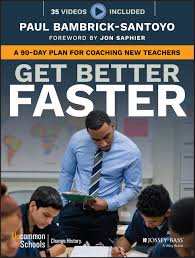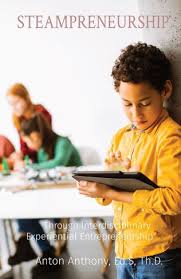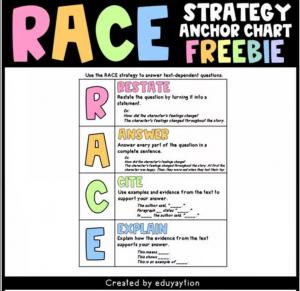
Dr. Anthony Announces Bold Plan to Address Literacy and Academic Gaps for the New Year
Dr. Anthony outlines strategies to improve academic outcomes through professional learning, real-world education, and systematic change
SPARTA, GA, UNITED STATES, January 1, 2025 /EINPresswire.com/ -- Dr. Anton Anthony, superintendent and educational leader, has unveiled a forward-thinking initiative to improve academic outcomes for students by tackling systemic gaps in literacy, math, and real-world readiness through innovative teaching strategies.
This comprehensive plan emphasizes professional learning, STEAM education, and actionable frameworks to empower educators and inspire students.
“As we enter the New Year, we are presented with an incredible opportunity to transform the way we educate and inspire the next generation,” Dr. Anthony said. “The question is, why can’t we ensure that every school and every classroom is a place of excellence? The time for systemic change is now.”
A Wake-Up Call for Systematic Change
Dr. Anthony’s plan stems from a need to address critical challenges facing schools today. Recently, third-grade reading scores in the district revealed some of the lowest results in years. Conversations with other districts have shown this is not an isolated issue—many schools are experiencing similar declines in reading proficiency.
“This is more than a data point; it’s a crisis,” Dr. Anthony said. “Meaningful change doesn’t happen by chance. It must be intentional, systematic, and shared across every classroom. That’s the focus of our initiative this year.”
Key Components of the Plan
Dr. Anthony’s strategy includes research-based methods designed to close gaps and create a culture of consistency and excellence in teaching and learning.
1. Professional Learning That Works
Dr. Anthony’s approach to professional development (PD) centers on actionable strategies educators can implement immediately. Inspired by Paul Bambrick-Santoyo’s Get Better Faster, the plan focuses on practice-based learning:
Purposeful DO NOW Activities: Sessions begin with quick, engaging activities to activate prior knowledge.
Case Studies and Video Modeling: Real-life classroom examples make abstract concepts tangible.
Hands-On Practice and Feedback: Teachers practice strategies in real time with coaching and feedback.
Exit Tickets for Accountability: Sessions conclude with reflections or demonstrations to reinforce learning.
“Our goal is to deliver 45 minutes of focused, impactful training that equips teachers to drive measurable improvements,” Dr. Anthony added.
2. STEAMpreneurship for Real-World Preparation
STEAMpreneurship—a blend of Science, Technology, Engineering, Arts, Mathematics, and entrepreneurship—is at the heart of the district’s efforts to make education practical and relevant. In his book Steampreneurship, Dr. Anthony outlines how connecting traditional subjects to real-world applications fosters critical thinking and problem-solving.
“When students understand why they’re learning math, science, and ELA—and how these subjects connect to real life—they personalize their education and grasp concepts better,” Dr. Anthony explained.
Examples include:
ELA: Analyzing and articulating ideas effectively.
Math: Applying logical thinking and data interpretation.
Science: Encouraging curiosity and experimentation.
3. Addressing Literacy Gaps: A Priority for 2025
To improve literacy, the plan incorporates systematic strategies that can be adopted across classrooms:
Guided Reading: Group students by ability to provide targeted instruction. Activities include previewing texts, vocabulary building, and comprehension checks.
Plot Mapping: Teach students to identify story elements like exposition, rising action, climax, and resolution.
RACE Writing: A structured framework where students Restate questions, Answer them, Cite evidence, and Explain their reasoning.
“These tools create a clear cycle of teaching—assess, teach, reflect, and adjust—ensuring systematic progress,” Dr. Anthony said.
4. Building Math Mastery with a Systematic Approach
The district is also rethinking how math is taught to address learning gaps:
The Math Workshop Model: Mini-lessons focus on key concepts, followed by guided practice and independent work.
RACE for Math: Adapted from literacy, this framework helps students tackle word problems by Reading, Analyzing, Computing, and Explaining their answers.
Visualization Tools: Tools like number lines, bar models, and manipulatives build confidence and conceptual understanding.
“These strategies not only close gaps but also ensure students develop the skills they need for academic and real-world success,” Dr. Anthony noted.
The initiative underscores a commitment to equity and consistency across schools. “This isn’t just about improving individual classrooms,” Dr. Anthony emphasized. “It’s about creating systems where every student has the opportunity to succeed.”
As the New Year begins, Dr. Anthony invites educators, administrators, and community leaders to collaborate in driving this vision forward. “Let’s make 2025 the year we answer the question, ‘Why can’t we do it?’—with a resounding, ‘We can.’ Together, we can transform our schools and inspire our students to achieve greatness.
Anton Anthony
AA Steam & Entrepreneurship Academy
+1 706-799-2684
email us here
Visit us on social media:
Facebook
Get Better Faster Clip 33 Guided Discourse
Distribution channels: Business & Economy, Culture, Society & Lifestyle, Education, Media, Advertising & PR, World & Regional
Legal Disclaimer:
EIN Presswire provides this news content "as is" without warranty of any kind. We do not accept any responsibility or liability for the accuracy, content, images, videos, licenses, completeness, legality, or reliability of the information contained in this article. If you have any complaints or copyright issues related to this article, kindly contact the author above.
Submit your press release


